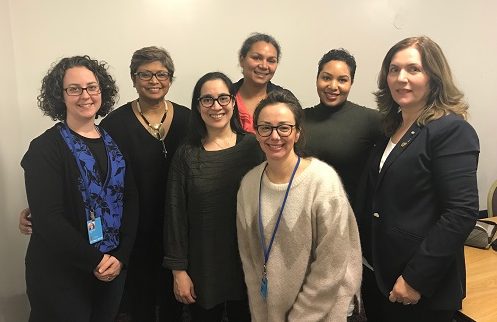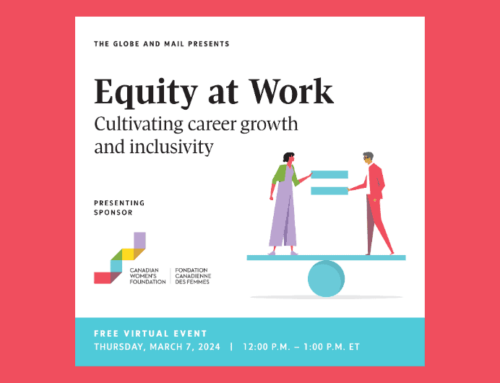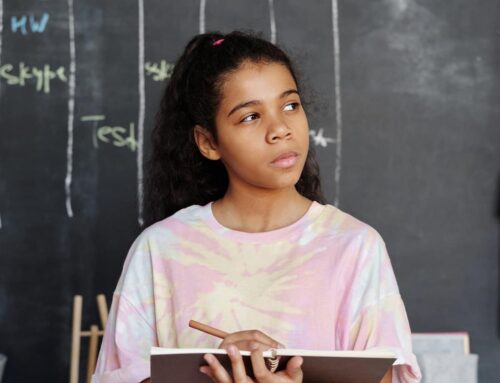The United Nations Commission on the Status of Women (UNCSW) is the principal intergovernmental body dedicated to the promotion of gender equality and the empowerment of women. In early March in New York, the commission met for its annual two-week session. Grantees of the Canadian Women’s Foundation were there to represent their communities and bring their perspective to the table.
The agreed conclusions of each UNCSW session are forwarded to the United Nations Economic and Social Council for follow-up, so the conversations that happen at this level can have serious weight on international policy. This year, UNCSW’s priority theme was “challenges and opportunities in achieving gender equality and the empowerment of rural women and girls.”
Keisha Paul, who was sponsored to attend this year’s session by the Canadian Federation of University Women, is a Business Consultant at SEED Winnipeg. We spoke to her halfway through her time at UNCSW to get an inside look at the events.
Tell me about your role at work and how that ties into you being at UNCSW.
SEED Winnipeg is an organization that empowers people to move past the barriers of poverty by empowering them financially. As a business consultant and a lead facilitator, I teach business skills, and advise people on how to establish and strengthen their business.
It helps strengthen our organization to find out what are people doing to empower women around the world. So many of our clients are women, and women from around the world, because we work with a lot of newcomers and refugees.
We also work with some rural people from Canada, which is relevant to the theme of this year’s CSW discussion. In Winnipeg, there’s a huge Indigenous population, and a lot of the time they’ve grown up in rural areas of the city, or on reserves, and they may be coming back and forth to the city. We’re hoping that by attending the sessions at the UN we can strengthen our understanding of their needs, and better understand some of their economic barriers to starting business. We’re bringing an intersectional perspective to this discussion.
You’re attending sessions both inside and outside of the UN – why is that?
There are two huge events going on at UNCSW. One is inside the United Nations, and that’s the official event. But, every year they also have hundreds of what they call “parallel events.” Parallel events are organized by non-profit organizations and NGOs. They organize all of these representatives from all over the world, who are not governmental officials, but who also have things to say. It’s even acknowledged inside the UN that so many of the people that are here, the people who are doing the work, are actually outside. People from different countries can interact with each other and with government officials to hopefully ensure they understand the needs on the ground.
What’s the atmosphere like inside the UN?
It’s hectic! It’s like trying to get into the hottest club for some of these events. But there have been some really amazing ones. For example, myself and another delegate got into a town hall event called #SGTownHall, where representatives could ask the Secretary-General of the UN questions. Getting in was a challenge because there were only 500 seats, and to get into the United Nations is like going through airport security, you get checked and scanned and everything like that.
Somehow, we got the very two best seats in the house, and proceeded to witness this awesome event where the Secretary-General addressed this huge crowd and allowed various people from all over the world to ask pertinent questions to the UN. The people who spoke, it was like they had prepared for years. They knew exactly what they were going to say, they had perfect diction in whatever language they were speaking, and they were hard questions.
Really and truly I was impressed by how the Secretary-General answered because they were not political, overly-diplomatic answers. They seemed to be very real, honest answers. You could tell that some of the answers weren’t what the people who posed them wanted to hear, but that was his truth.
What’s been your biggest takeaway so far?
I would say that my biggest takeaway is that people are really trying. You can see that when you’re here, there’s so much being done by community organizers, by community activists. And the key word is community. They’re the ones who are going to make the change. I think that it’s great to converse with government and to have that parley between each other, but I just hope that the rest of the people who come to UNCSW really give themselves that permission to be the leaders.
When you’re at the United Nations, it’s such a buzz word, we’ve heard about it our entire lives. And then you realize – “Hey wait a sec, they’re just people. There’s only so much that they can do.” And even with this huge organization behind them, really and truly the only person who knows your community the best is you.
By getting out and meeting with people, you know, you can have your own little United Nations in your own community, by organizing and meeting with people and talking with them. That’s what we’re doing here. We’re just getting out of our comfort zone and talking, and more so listening, to what others have to say. And we’re taking the time to get something out of it that we can share and bring back to our organizations. We can create this dialogue at home – it’s just as important there as it is here.
Learn More:
- How Do We Get More Women on Boards?
- Addressing Gender-Based Violence Helps Close the Gender Pay Gap
- Hope for the Future: The Journey out of Generational Poverty
Take Action:
- Sign up for our e-newsletter to have our latest stories and resources sent to your inbox.
- Follow us on Facebook and Twitter to join a national conversation about gender equality.







[…] Canadian Delegates Speak Up Canadian Delegates Discuss their #FeministVision at the UN’s Commission on the Status of Women On International Women’s Day, Let’s Remove These Six Barriers to Women’s Leadership […]